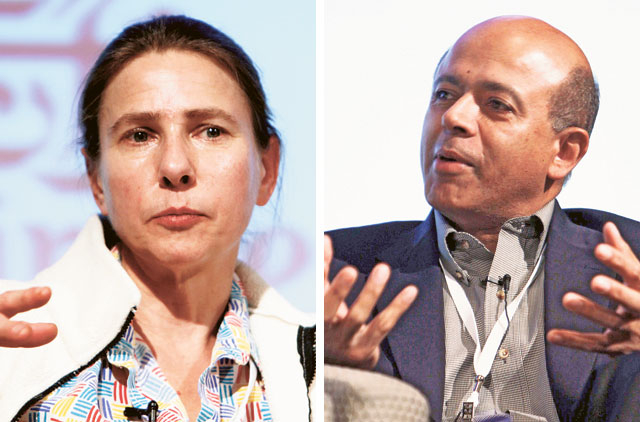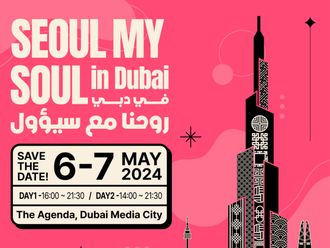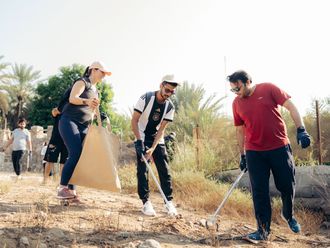Dubai: For months before the third annual Emirates Airline Festival of Literature got underway, a group of bookworms set about reading a selection of authors' works, as part of a new feature of the event.
The Festival Reading Group (FRG) members read five titles from last November: Margaret Atwood's Alias Grace; Leila Aboulela's Lyrics Alley; Abraham Varghese's Cutting for Stone; Marina Lewycka's Two Caravans and We Need to Talk About Kevin by Lionel Shriver. FRG members and other book enthusiasts had the opportunity to come face-to-face with the four authors during a popular Festival session yesterday.
Becky Kilsby, FRG leader, put forward questions that had been raised by the group during its meetings.
Becky Kilsby (FRG leader): One thing that people in the book club observed, was that you used surgery as a way of producing drama in the book. Were you concerned about how much surgery you could include?"
Abraham Verghese: Yes, I was a bit concerned because you don't want to overwhelm the reader. For example, the vasectomy scene… I've seen people read it in the bookstore aisles, go pale and leave. There have been a variety of responses. But I think detail is important. I even had someone say after reading it that they were ready to do a vasectomy.
Did setting "Lyrics Alley" make it more difficult to talk about issues, or did you approach it differently?
Leila Abouleila: It was different in that after writing my first two novels I went back to Sudan after some years. And the thing that happened when I got back was that I saw my Father and visiting his life. And I kept going back and spending more time with him, and it turned out to be the last years of his life."
Lesley Cully: How much of your work do you feel is autobiographical; how much of yourself do you put in your characters?"
Leila Abouleila: I know there's a saying: "Write about what you know". I go a little bit further and say: Write about what you understand. So I try and write, find myself writing about what I understand and what I know very well, which is obviously mostly my experiences; but it doesn't mean actual experiences in the novel are of myself.
Abraham Verghese: A very common question for me is: Is it autobiographical? Because it's set in Ethiopia, I was born there and it's written about medicine. I spend a lot of time denying that my mother was not a nun and I don't have a twin. The more I speak about it, the harder I find to deny that the larger things are in a sense autobiographical. It's a very expensive form of psychotherapy, writing. There are a lot of serious things that emerge."
Lionel Shriver: I also deny having shot up my school myself. Kevin is completely made up. But you seek out the true prose despite yourself. Everything, in all of my books came from somewhere, as much as I might try to disguise it. One of the things that's clear in my books is that I was ambivalent about becoming a mother.













